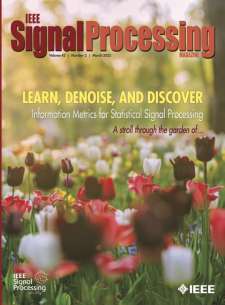Tricks for Designing a Cascade of Infinite Impulse Response Filters With an Almost Linear Phase Response
Top Reasons to Join SPS Today!
1. IEEE Signal Processing Magazine
2. Signal Processing Digital Library*
3. Inside Signal Processing Newsletter
4. SPS Resource Center
5. Career advancement & recognition
6. Discounts on conferences and publications
7. Professional networking
8. Communities for students, young professionals, and women
9. Volunteer opportunities
10. Coming soon! PDH/CEU credits
Click here to learn more.
Tricks for Designing a Cascade of Infinite Impulse Response Filters With an Almost Linear Phase Response
Designing filters with perfect frequency responses (i.e., flat passbands, sharp transition bands, highly suppressed stopbands, and linear phase responses) is always the ultimate goal of any digital signal processing (DSP) practitioner. High-order finite impulse response (FIR) filters may meet these requirements when we put no constraint on implementation complexity. In contrast to FIR filters, infinite impulse response (IIR) filters, owing to their recursive structures, provide an efficient way for high-performance filtering at reduced complexity. However, also due to their recursive structure, IIR filters inherently have nonlinear phase responses, and this does restrain their applicability. In this article, we propose two tricks regarding cascading a prototype IIR filter with a few shaping all-pass filters (APFs) for an almost linear phase response over its passband. After performing a delicate design on the prototype and shaping filters, we approach perfect filtering with reduced complexity.
Over the past decades, we have witnessed the power of DSP in various fields of applications, e.g., wireless communication [1], [2], seismology [3], and biomedical sciences [4]. Digital filtering undoubtedly plays an important role in realizing these fancy applications. When filtering with a linear phase response, the intended signal merely experiences a constant group delay and preserves its waveform. This is a vital feature for many applications, e.g., the denoising of electrocardiography (ECG) records [4] and seismologic signals [3].
Traditionally, high-performance filtering with linear phase responses is achievable by high-order FIR filters. This, in turn, increases the system complexity (the number of adders and multipliers), although there are techniques to cut the system complexity in half by folding the symmetric filter coefficients [5]. The filter cascade technique can be used for designing filters with reduced complexity, e.g., the composite filter in [6] and interpolated FIR filters [5], [7]. A comprehensive survey regarding the design techniques of FIR filters is presented in [8]. Among these design techniques, the works in [9] and [10] extend the idea of interpolated FIR filters by first designing a bandpass filter and then modifying it by shaping the model filter by using some masking filters. This technique is an attractive candidate for obtaining a filter with a sharp transition band. The results show supremacy over other designs in terms of filtering performance and implementation complexity. However, there still exists room for further improvement. In contrast to FIR filters, IIR filters do achieve high-performance filtering with low system complexity due to their recursive structures. But also due to their recursive structures, IIR filters are unable to provide linear phase responses. In this article, we provide our solution to the problem of perfect filtering with reduced complexity. Our solution is realized through cascading a prototype IIR filter with a few shaping APFs for an almost linear phase response over the passband. The proposed composite filter can be used to replace any ordinary FIR filter with fixed filter coefficients. We then approach perfect filtering with reduced complexity.
SPS Social Media
- IEEE SPS Facebook Page https://www.facebook.com/ieeeSPS
- IEEE SPS X Page https://x.com/IEEEsps
- IEEE SPS Instagram Page https://www.instagram.com/ieeesps/?hl=en
- IEEE SPS LinkedIn Page https://www.linkedin.com/company/ieeesps/
- IEEE SPS YouTube Channel https://www.youtube.com/ieeeSPS














